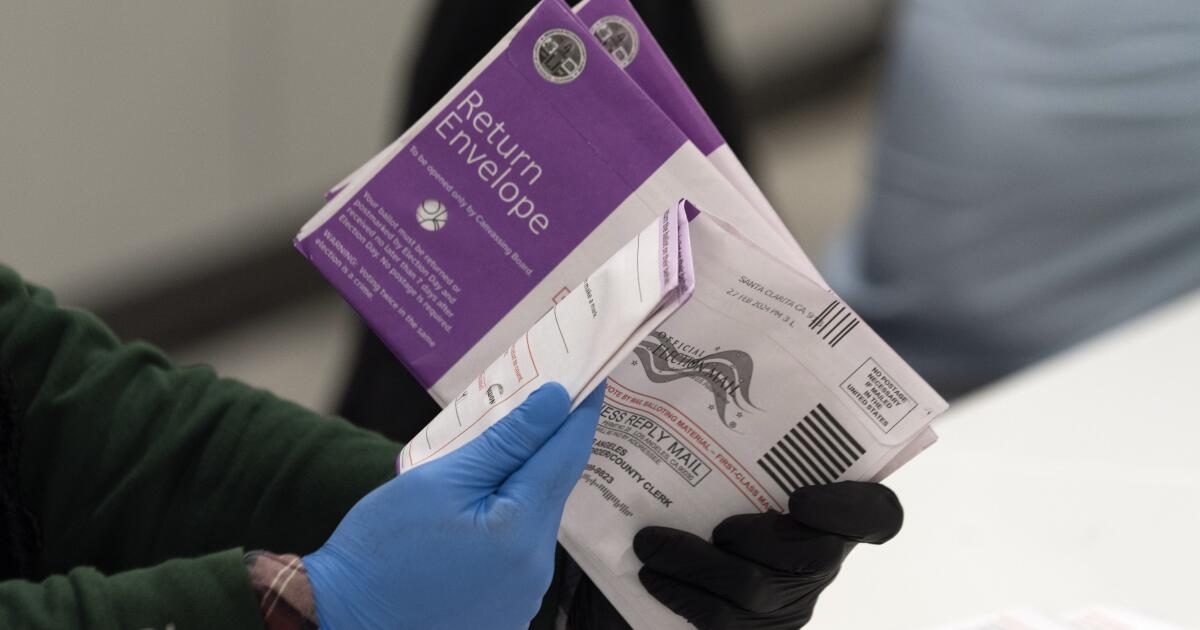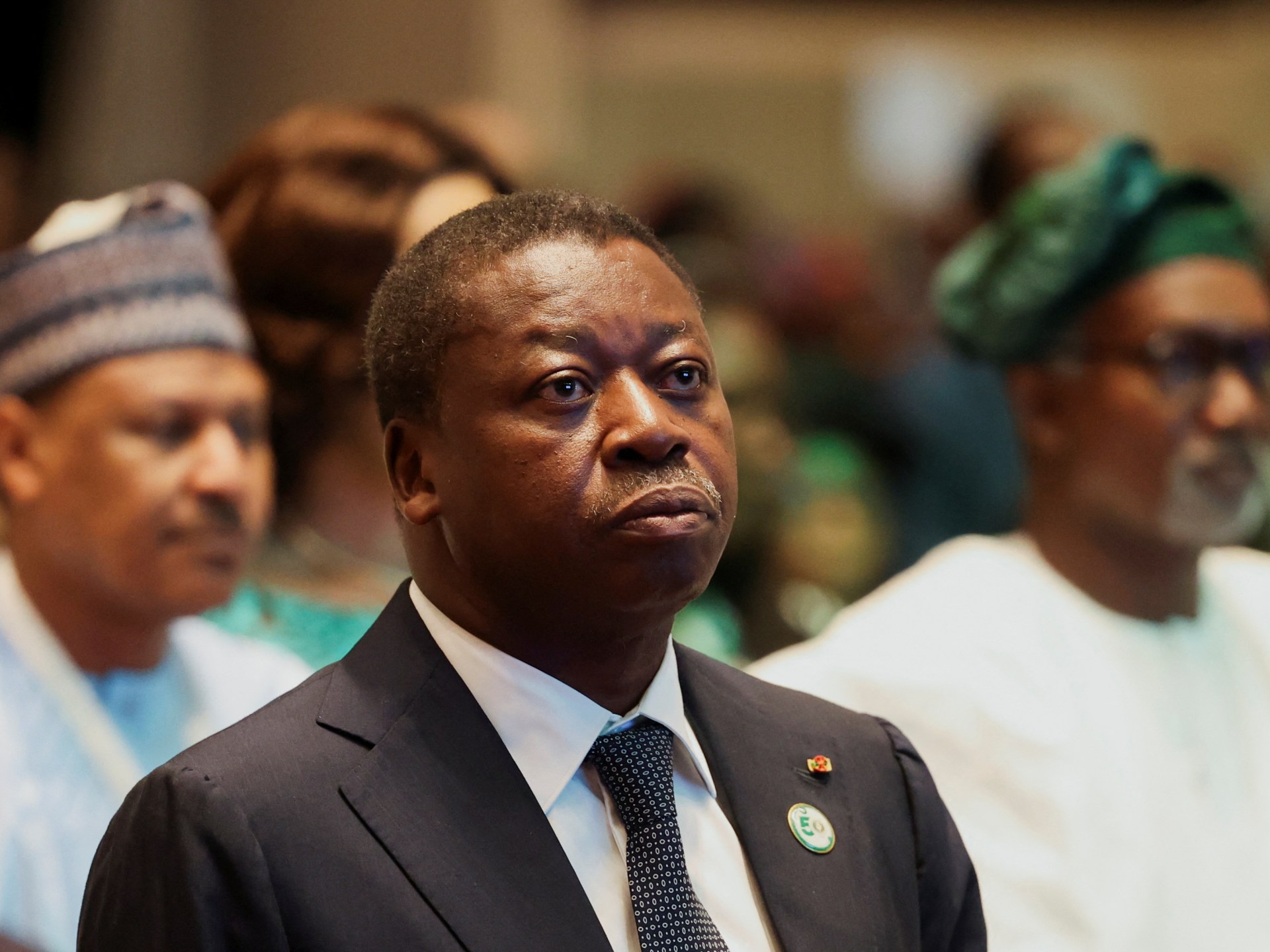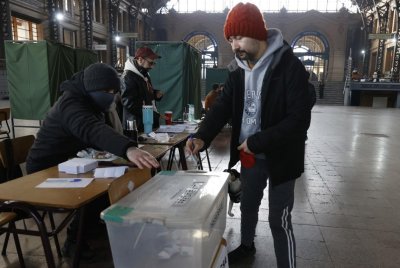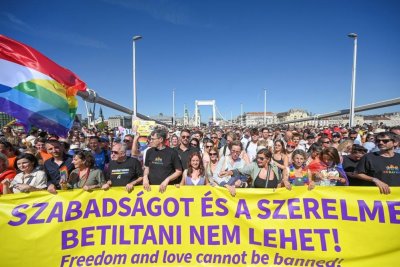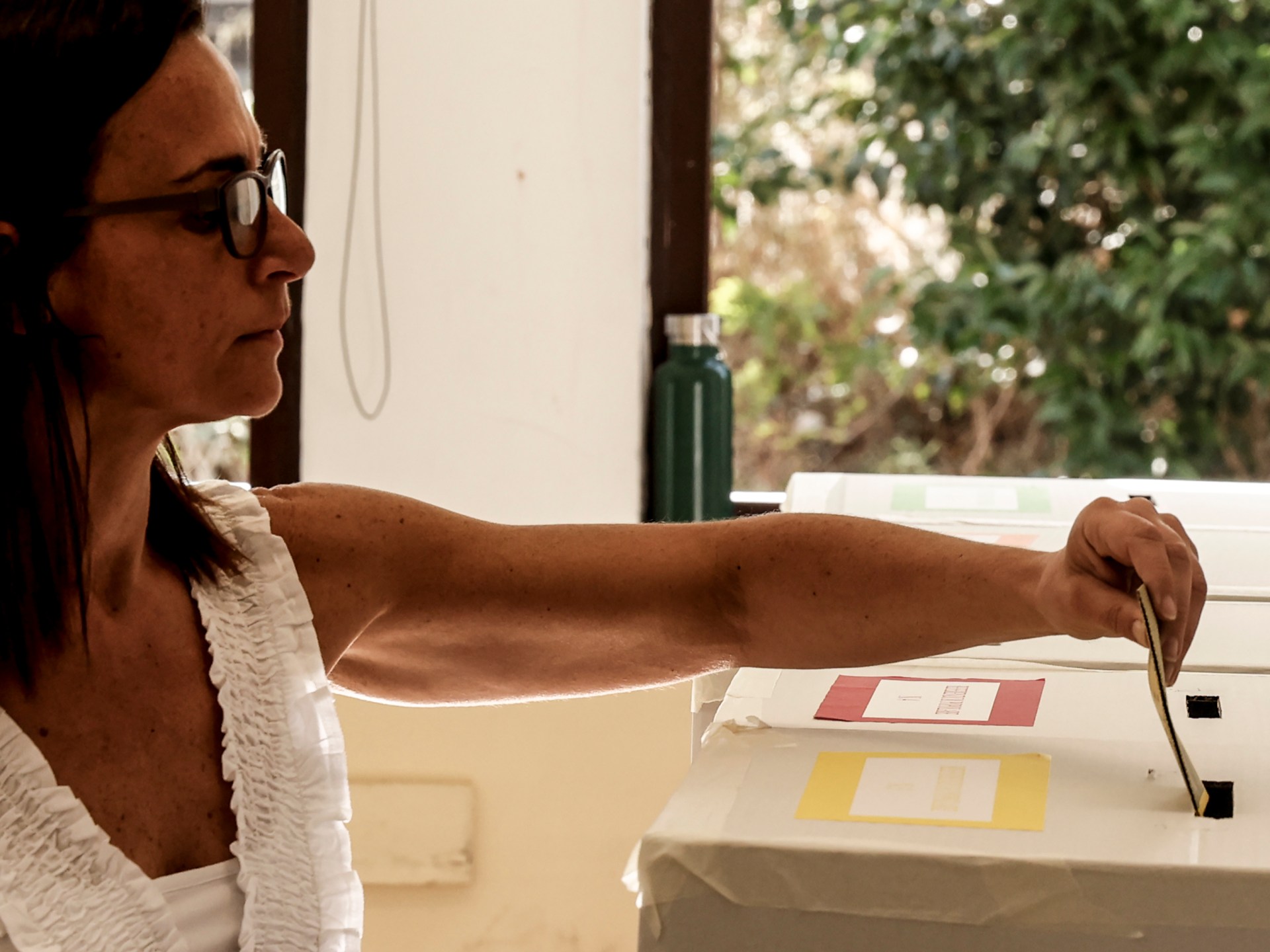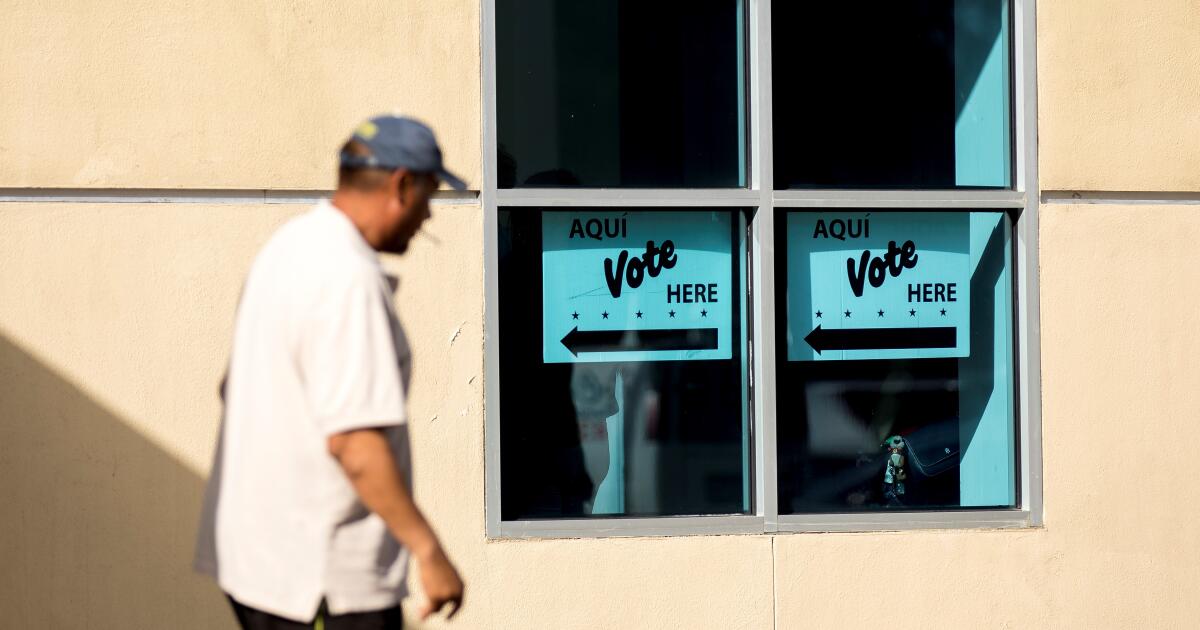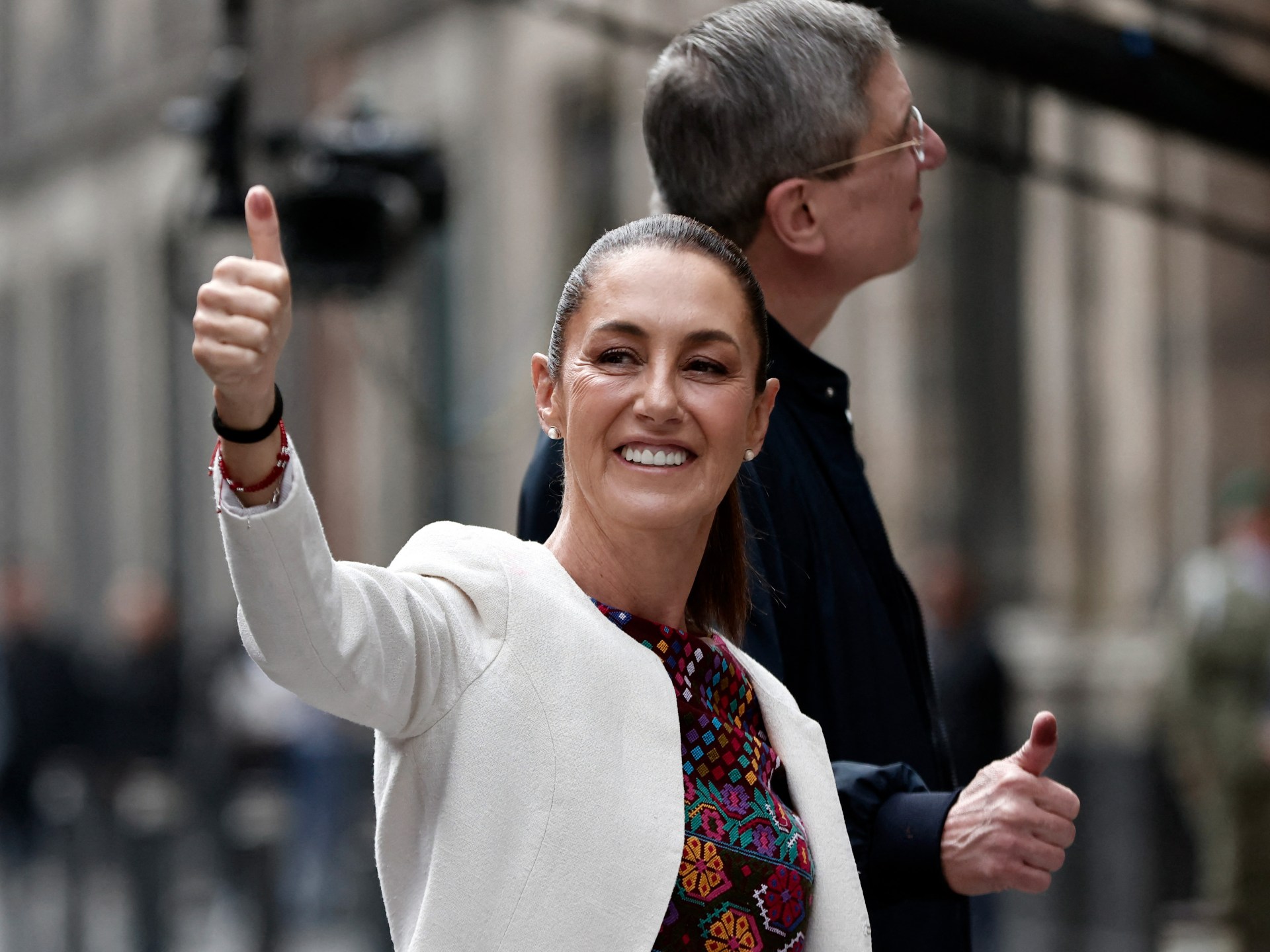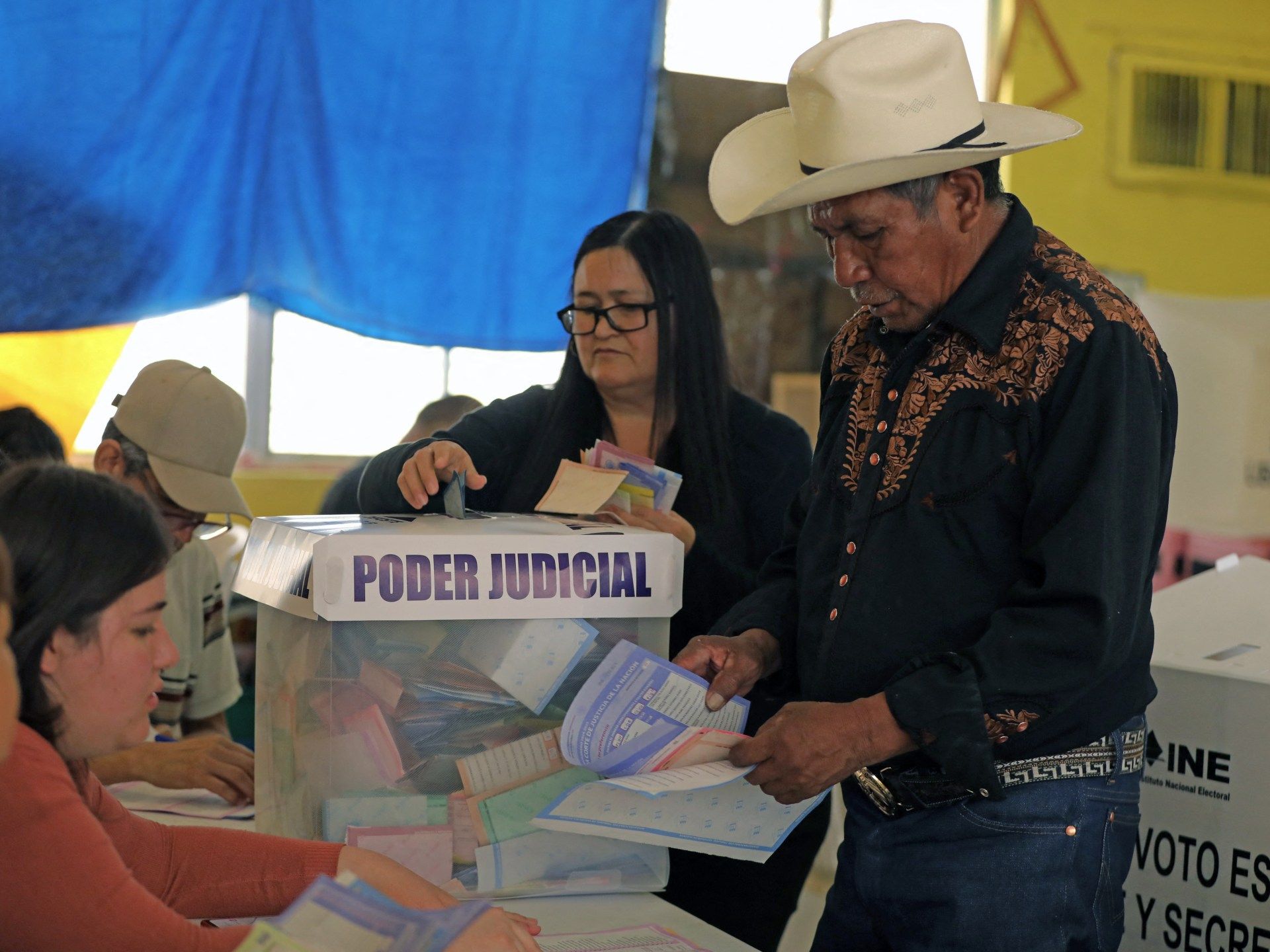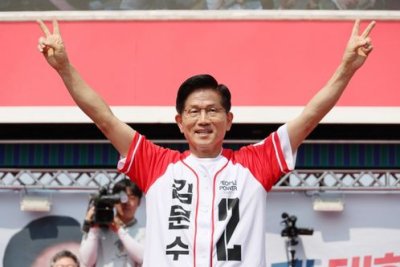Voter turnout exceeds expectations in California Prop. 50 special election
Early voter turnout is exceeding expectations in California’s Nov. 4 special election over redrawing the state’s congressional districts, a Democratic-led effort to counter Republican attempts to keep Congress under GOP control.
“We’re seeing some pretty extraordinary numbers of early votes that have already been cast, people sending back in their ballots,” Gov. Gavin Newsom said in a livestream with former President Obama on Wednesday.
More than 3.4 million mail ballots have been returned as of Wednesday, with votes from Democrats outpacing ballots from Republicans and Californians registered as not having a party preference, according to a ballot tracker run by Democratic strategist Paul Mitchell. Mitchell is deeply involved in the Democratic effort, and drafted the proposed congressional districts on the Nov. 4 special election ballot.
That’s roughly the same number of ballots returned by this time in the White House contest between then-Vice President Kamala Harris and then-former President Trump in 2024, notable because turnout during presidential elections is higher than in other years.
About a million more ballots had been turned in by this point in the unsuccessful 2021 attempt to recall Newsom, but that was during the COVID pandemic.
This year’s turnout is also especially significant because Proposition 50 is about the esoteric topic of redistricting. Redrawing congressional districts is usually a once-a-decade process that takes place after the U.S. census to account for population shifts.
California’s 52 congressional districts currently are crafted by a voter-approved independent commission, but Newsom and other California Democrats decided to ask voters to allow a rare mid-decade partisan gerrymandering to blunt Trump’s efforts in GOP-led states to boost his party’s numbers in the House.
Obama, who has endorsed Proposition 50 and stars in a television ad supporting the effort, on Wednesday said the ballot measure will affect the entire country.
“There’s a broader principle at stake that has to do with whether or not our democracy can be manipulated by those who are already in power to entrench themselves further,” Obama said. “Or, whether we’re going to have a system that allows the people to decide who’s going to represent them.”
About 51% of the ballots that have been returned to date are from registered Democrats, while 28% are from registered Republicans and 21% are from voters who do not express a party preference.
It’s unknown how these voters cast their ballots, but the Democratic advantage appears to give an edge to supporters of Proposition 50, which needs to be passed by a simple majority to be enacted. About 19.6 million ballots — roughly 85% of those mailed to California voters — are outstanding, though not all are expected to be returned.
The current trend of returned ballots at this point shows Democrats having a small edge over Republicans compared with their share of the California electorate. According to the latest state voter registration report, Democrats account for 45% of California’s registered voters, while Republicans total 25% and “no party preference” voters make up 23%. Californians belonging to other parties make up the remainder.
Mitchell added that another interesting data point is that the mail ballots continue to flow in.
“Usually you see a lull after the first wave — if you don’t mail in your ballot in the first week, it’s going to be sitting on the counter for a while,” Mitchell said. But ballots continue to arrive, possibly encouraged by the “No Kings” protests on Saturday, he said.
A spokesperson for the pro-Proposition 50 campaign said they are taking nothing for granted.
“With millions of ballots still to be cast, we will keep pushing to make sure every Californian understands what’s at stake and turns out to vote yes on Nov. 4th to stop Trump’s power grab,” said spokesperson Hannah Milgrom.
Some Republican leaders have expressed concerns that the GOP early vote may be suppressed by Trump’s past criticism about mail balloting, inaccuracies in the voter guide sent to the state’s 23 million voters and conspiracy theories about the ballot envelope design.
“While ballot initiatives are nonpartisan, many Republicans tend to hold on to their ballots until in-person voting begins,” said Ellie Hockenbury, an advisor to the “No on Prop 50 — Stop Sacramento’s Power Grab” campaign committee. “As this next phase starts — and with nearly two weeks until Election Day — we expect already high turnout to continue rising to defeat Proposition 50 and stop Gavin Newsom’s partisan power grab.”
Amy Thoma, a spokesperson for the other major group opposing the proposition, said the data show that the voters who have returned ballots so far are not representative of the California electorate.
“Special elections tend to be more partisan, older and whiter than general elections, which is one of the reasons we’ve been concerned about the speed with which the politicians pushed this through,” she said.
